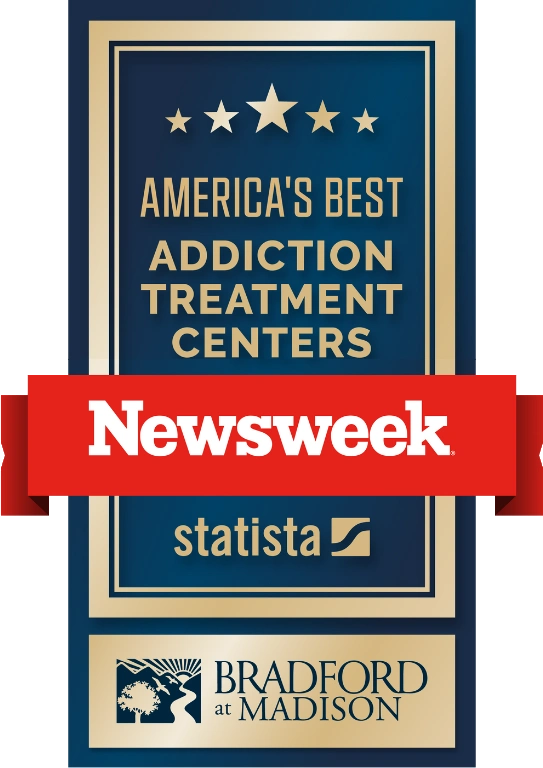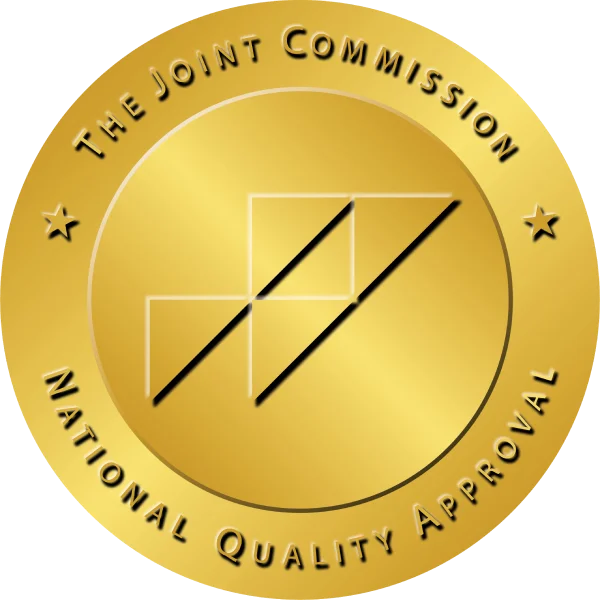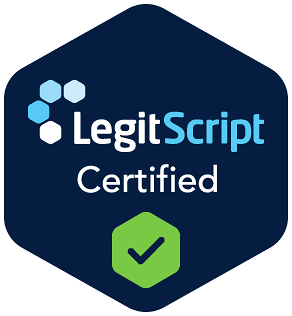Heroin Addiction Treatment in Alabama: Understanding the Path to Recovery

Heroin addiction is a devastating mental health concern that puts the lives of millions of people at risk each year. In 2021 alone, 9,173 people throughout the country died as a result of a heroin overdose, while countless more experienced severe negative consequences in all aspects of their lives as a result of opioid use disorders.
If you’ve been battling a heroin addiction and have unsuccessfully tried to break free from the grasp that the drug has on you, you may feel helpless and unsure of how to regain control of your life. Heroin addiction is a relapsing and chronic condition, so recovering is not as simple as just deciding to quit.
Instead, the majority of people require the help of a heroin treatment center to receive the type of support that they need. But what are the signs of heroin addiction, and what type of help is available? Learn more about treatment options and how the right program can make a difference.
What Is Heroin?
Before learning how to treat heroin addiction, it’s essential to understand the potency of this drug and why it can have such a dangerous hold on you. Heroin is an opioid made from morphine, which is a natural substance created from opium poppies.
Heroin is a rapidly acting opioid that can be snorted, smoked, or injected. It’s highly addictive because of how powerful its effects are on the brain. Because it’s an opioid, the drug impacts the opioid receptors, dulling pain and giving you a rush of euphoria that encourages you to use the drug again.
Why Is Heroin So Dangerous?
Heroin is an opioid that can cause your heart and respiration rates to become dangerously slow. If you take more than your body can withstand, which is called an overdose, you’ll need immediate medical assistance to reverse the effects.
One of the challenges of all addictions, but especially when the problem involves depressants, is that your body can become used to the usual amount you take. You build a tolerance to the heroin, prompting you to take more of it so that you can feel the same pleasurable effects you did the first time you tried it.
As you continue to do this, you come closer and closer to taking too much. What happens if you do? You can experience some of the most common symptoms of heroin overdose, which are the same as those for other opioids and include:
- Very low blood pressure
- Slowed breathing
- Pinpoint pupils
- Severe drowsiness
- Weak pulse or no pulse
- Tongue discoloration
- Blue lips
- Vomiting
- Clammy skin
- Stomach spasms
- Disorientation
- Delirium
- Cessation of breathing
Not getting immediate care could mean ending up in a coma or worse. Opioid overdoses are highly dangerous because of the way that the drugs impact your breathing mechanism and your gag reflex. You can stop breathing altogether or choke on your own vomit after falling unconscious.
Signs and Symptoms of Heroin Addiction
Some of the most common symptoms of heroin addiction include:
- Increased sleeping
- Dry mouth
- Slurred speech
- Decreased breathing rate
- Decreased heart rate
- Runny nose
- Skin scabs
- Weight loss
- Mental fogginess
- Confusion
- Anxiety
- Mood swings
If you suspect a loved one may be addicted to heroin, some of the signs to watch for include seeing them isolating, having money problems, lying about drug use, and engaging in unusual behaviors, such as wearing long sleeves even in the summer.
What Is Heroin Addiction Treatment?
Heroin addiction treatment refers to programs that can help you or a loved one break free from substance abuse. A heroin rehab program can tackle the underlying cause of the addiction while also ensuring that you’re safe as you go through the detox process.
When searching for “heroin rehab near me,” it’s essential to consider the type of program that can best suit your needs. There are a variety of options that could offer the exact care you need. If you served your country in the military, for example, there are targeted addiction rehab programs for veterans that can provide the right level of support.
You should search for a center that focuses on offering comprehensive care. This means that they have heroin detox services, inpatient and outpatient care, and alumni programs.
Heroin Withdrawal and the Risks of Detoxing Alone
The first step that you’ll have to undergo at an Alabama addiction treatment center is detoxification. This is the process that helps you get rid of heroin from your system so that you can start focusing on therapy and understanding why the addiction began in the first place.
The problem is that your body has become so used to functioning with heroin that the moment you stop taking it, all manner of withdrawal symptoms can begin. It’s never a good idea to attempt this step on your own. The symptoms can be so severe that you could put your life at risk. It’s common to experience significant anxiety, a racing heart, and intense vomiting.
Many people end up turning to heroin again just to get relief from the withdrawal process, which presents its own dangers. Your body will have already purged itself of a significant amount of the drug, and that can mean that your tolerance levels have dropped. If you try to use the same amount of heroin as usual, you could overdose.
To prevent all of these serious dangers, you need a rehab for heroin that provides detox services. By learning how to detox from heroin, you can begin your recovery on the right foot.
Medical Detox for Heroin: What to Expect at Bradford at Madison

The most effective heroin withdrawal treatment options are those that offer medication-assisted care. At Bradford at Madison, we provide detox services that can keep you safe as you eliminate the drug from your system.
We provide inpatient heroin detox that allows you to receive 24/7 monitoring from medical professionals. They will check your vital signs and offer medications that can help you avoid the worst of the withdrawal symptoms.
The medications for heroin withdrawal that we rely on will be carefully adjusted to meet your exact needs and to address any health issues you may have. Throughout the program, you’ll receive mental health assistance, as well. All of this gives you the chance to reset your body and mind before beginning the work of remaining sober.
Residential vs. Outpatient Care for Heroin Addiction
Once you have completed the heroin detox program, you’ll have the choice of residential (inpatient) or outpatient care. Your exact circumstances and the severity of the addiction will influence which option might be the right one.
Inpatient heroin rehab programs offer the constant support you need as you begin your recovery. You are required to stay overnight at the center, where you can receive the highest level of treatment and monitoring.
Our residential rehab center provides help for heroin withdrawal and then moves directly to therapy sessions to uncover the root cause of the problem.
It can be an excellent option for those who don’t have a home environment that encourages sobriety or those who would like to immerse themselves in the recovery process without distractions. With leading options when it comes to therapy for opioid addiction, our center provides the comprehensive support you need.
This may not be a choice for everyone, however. If it’s impossible to step away from your daily life, either because of work or family responsibilities, an outpatient heroin rehab in Alabama can be a good option. Outpatient treatment programs provide a high level of care but allow you to return home each night.
Because of the severity of opioid addiction, the majority of people will benefit the most from residential heroin treatment. With a team of experts by your side, you can get recommendations on the program that can make the biggest difference in your journey.
Benefits of Inpatient Treatment for Heroin Addiction
Inpatient opioid addiction treatment in Alabama allows you to be surrounded by people who are also there to recover. This provides a secure environment in which to address the cause of the substance use disorder. The structured environment encourages you to focus on healing.
You receive close monitoring as you go through the detox process and can see medical professionals at any time if you need assistance with managing symptoms. You also have access to a supportive community of mental health experts and peers. This allows you to see that you’re not alone in your experience with addiction.
Dual Diagnosis and Co-Occurring Disorders in Heroin Recovery
One of the things to consider when getting help for heroin addiction is the possibility that you have co-occurring mental health concerns that need to be addressed. If that’s the case, then you could benefit from dual-diagnosis treatment.
Dual-diagnosis care treats both the addiction and co-occurring disorder at the same time. Because these conditions feed off one another, tackling them individually is not effective. Instead, you’ll receive therapy sessions that work to uncover how these conditions began, as well as what might be triggering them and not allowing you to heal.
Medication-Assisted Treatment (MAT) and Its Role in Heroin Rehab
Medication-assisted treatment for heroin provides aid through the recovery process via carefully chosen medications. These drugs help to curb cravings and keep you stabilized so that you can focus on your therapy sessions and on continuing to make strides in your sobriety.
MAT for heroin addiction usually relies on methadone, buprenorphine, and naltrexone. Your care team will assess your health levels to provide insight into which is the right option and appropriate dosage for you.
What Happens After Detox: Therapy, Relapse Prevention, and Aftercare

Once you complete the detox process, you can begin your therapy sessions. You will receive individual treatment that utilizes behavioral therapies to show you how your thought processes influence your moods and actions. You can also learn how to better manage difficult emotions without turning to heroin use.
Group therapy sessions are another crucial component of getting heroin addiction help. You can relearn how to communicate with people more effectively while also being able to put the strategies you learn in your therapy sessions to work.
During both individual and group sessions, you will also develop relapse prevention techniques that you can rely on if you find yourself struggling once you leave official treatment. To further prevent the risk of a relapse, we offer aftercare for addiction recovery that keeps you connected with your care team and focused on your progress.
Why Choose Bradford at Madison for Heroin Addiction Treatment?
If you’re searching for heroin addiction help that provides comprehensive programs personalized to meet your needs, choose the team at Bradford at Madison. We offer the compassionate assistance you deserve and the type of full support that makes long-term recovery a real possibility.
By offering inpatient and outpatient services, along with MAT for opioid addiction, detox, and dual diagnosis programs, we can help you get sober in a safe environment. Our aftercare services offer further assistance as you get your footing back out in your daily life, keeping you connected to your support team.
Does Insurance Cover Heroin Rehab in Alabama?
A common question people have before entering treatment is, “Does insurance cover heroin rehab?” Most insurance providers do cover heroin rehab, but it’s essential to check your plan to see the length of treatment you may receive help for and to learn about other details that can make a difference in the program decision you make.
Steps to Take if You or a Loved One Needs Heroin Addiction Help
If you or a loved one is living with heroin addiction, there is help available. The first step is realizing that you need guidance, and then it’s all about turning to people who are ready to put you on the path to healing. At Bradford at Madison, our caring and informed team of experts provide the ongoing support you deserve.
Don’t wait another day to break free from the hold that heroin has on you. Contact us to speak with one of our specialists about beginning your journey toward long-term sobriety.



